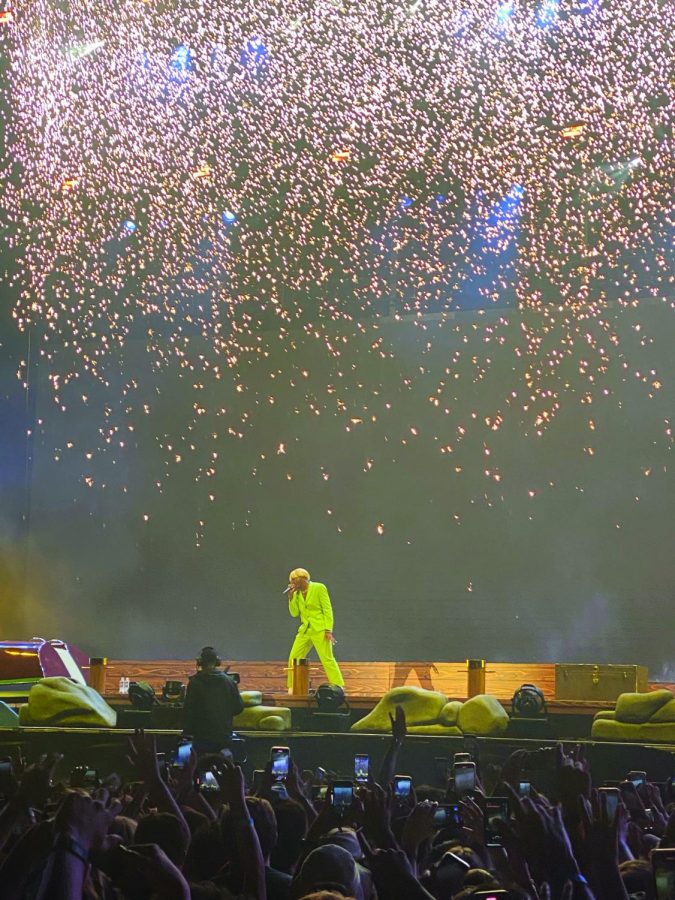Lollapalooza has large turnout, few COVID cases
Lollapalooza, a four-day music festival, returned this year after not taking place in 2020. It was held from July 29 through Aug. 1 and lasted from 11 a.m. to 10 p.m. every day.
Lollapalooza hosted hundreds of thousands of attendees, with performances from artists such as Tyler The Creator and Miley Cyrus. Fans and festival-goers came from across Illinois, including several students from Vernon Hills High School.
With more than 350,000 fans crowding into Grant Park in Chicago to watch artists perform, the music festival did not seem to suffer a significant loss of ticket sales despite concerns about COVID-19. In 2019, there was a similar turnout for Lollapalooza, in the same range of 350,000 to 400,000 tickets sold.
More than 150 different artists performed live in front of thousands, with over 40 performances each day. Deen Hatibovic (10) shared his experience, having attended several different performances.
“I didn’t really know many songs of [Young Thug] so when I heard the new songs, it was just really good to see him perform,” Hatibovic said.
In 2020 and 2021, several large festivals were cancelled due to concerns regarding COVID-19, including this year’s Coachella event and CMA Fest. Lollapalooza was one of the first major music festivals to return in the past year.
Popular artists performed, attracting large crowds for every show. Flo Milli, Post Malone and Brock Hampton were headliners for the festival. The event was held outdoors where fans gathered around a stage to watch performances. There was also an option to live stream the event from home this year, provided by the streaming service Hulu.
Hatibovic also mentioned his disappointment in Playboy Carti’s performance and the crowd that attended, describing the overall experience as negative. Hatibovic also watched the performance by Ian Dior.
The aspect of COVID safety during this event was not lost on the coordinators of Lollapalooza or the guests attending. According to Lollapalooza’s webpage on health protocols, those who were unvaccinated were required to wear a mask. In order to enter the festival grounds, one had to show proof of vaccination or a negative COVID test from the last 72 hours. There is no mention of social distancing requirements.
Hatibovic noticed a lack of mask-wearing throughout the four days and the constant closeness of people in the crowd to one another.
“It’s like COVID wasn’t even a thing,” Hatibovic said.
According to the Associated Press, Chicago Health Officials reported 203 cases of COVID-19 related to the Lollapalooza festival, around .05% of attendees. However, some reported cases may have been contracted before the festival began.
Emily Dornbusch (10) did not attend Lollapalooza; she expressed the feeling that attending the event might be dangerous given the current conditions of COVID-19 infection.
“They’re [large scale events and festivals] being held sooner than they should, especially with the new Delta variant,” Dornbusch said.
Tyler Fitzgibbons and Thomas Winegardner contributed to this report.

